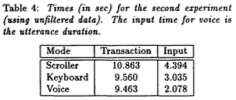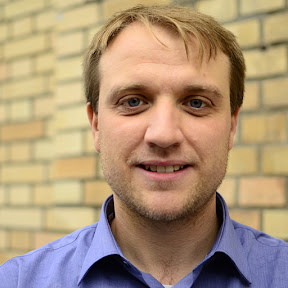A. I. Rudnicky. Mode preference in a simple data-retrieval task. In HLT ’93: Proceedings of the workshop on Human Language Technology, pages 364–369, Morristown, NJ, USA, 1993. Association for Computational Linguistics. [PDF]
———–
The study reported in this paper indicates that users show a preference for speech input despite its inadequacies in terms of classic measures of performance, such as time-to-completion. Subjects in this study based their choice of mode on attributes other than transaction time (quite possibly input time) and were willing to use speech input even if this meant spending a longer time on the task. This preference appears to persist and even increase with continuing use, suggesting that preference for speech cannot be attributed to short-term novelty effects.
This paper also sketches an analysis technique based on FSM (Finite State Machine) representations of human-computer interaction that permits rapid automatic processing of long event streams. The statistical properties of these event streams (as characterized by Markov chains) may provide insight into the types of information that users themselves compute in the course of developing satisfactory interaction strategies.

